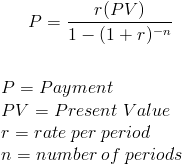What Is the FICA?
In the United States, a law known as the Federal Insurance Contributions Act (FICA) was passed in 1935. This law requires a payroll tax to be withheld from workers' paychecks, and employers must make matching contributions. The collected funds are used toward the money and expansion of the Social Security and Medicare systems.
In the beginning, the intention behind the act was for working people to contribute a specific amount of money from each of their paychecks throughout their working years to fund Social Security so that when they reached retirement age, they would be able to rely on the earned health and financial benefits that they had accrued.
History
The United States Congress enacted the Federal Insurance Contributions Act in 1935. In the same year that President Franklin D. Roosevelt's administration launched the new Social Security program, the goal of this organization was to collect contributions from individuals to finance the program.
Roosevelt thought the money collected from all working Americans via FICA would belong to those workers. He didn't want their retirement benefits, disability benefits, or death benefits to be contingent on how much money the federal government brought in. His greatest money was that the politicians would appropriate the funds for their gain.
When President Lyndon B. Johnson signed Medicare into law in 1965, he also inserted the payroll tax that would later be used to finance the program's health care benefits. Contributions to FICA must be made regularly. Even though it is subject to yearly change, the rate has been consistent since 1990. The limit shifts yearly according to the National Average Wage Index, which is the basis for the calculation.
Rates and Limits
According to the IRS, FICA taxes consist of Social Security taxes for insurance, disability, and survivorship, in addition to the tax for hospital insurance (Medicare). Each one uses a distinct pricing structure. There is a maximum wage foundation for Social Security taxes on wages, and no taxes are imposed if earnings are higher than that base. The pay base is going up to $160,200 in 2023 from its current $147,000 in 2022.
Regarding Medicare taxes, there is no cap on a wage basis. The individual and the employer are responsible for paying their respective portions of the 12.4% Social Security tax rate in 2022 and 2023. The employee pays 6.2% of the total, while the company pays the remaining 6.2%. The employee and the employer are responsible for paying a portion of the 2.9% Medicare tax. The employee and the employer contribute 1.45% of the total cost.

Employees are responsible for paying an extra 0.9% in Medicare tax when their salaries exceed a certain level. This threshold is set at $200,000 for individuals in 2022 and $250,000 for married couples who file their taxes jointly. Therefore, an employee's total Medicare tax may be as high as 2.35%, which would consist of 1.45% of their salary plus 0.9%. The increased Medicare levy is not something that employers are compelled to match.
Special Considerations
An emergency stimulus package of $2 trillion for the coronavirus was signed into law by former President Donald Trump on March 27, 2020. It was permissible for employers, but not workers, to delay their portion of the Social Security taxes due for the year ending on December 31, 2020, thanks to the CARES Act. To be more specific, the postponed sum has to be paid in whole by December 31, 2021.
The remaining balance must be paid by December 31, 2022. The legislation also applies to those who are self-employed. Certain employers were also qualified to file a claim for a credit against their payroll taxes for workers they continued to pay even though they could not work due to the epidemic.
Do I Have To Pay FICA?
Yes. The Federal Insurance Contributions Act, sometimes known as FICA, stipulates that individuals who receive wages must set aside a certain percentage of their wages to pay into the Social Security and Medicare systems. You will be eligible to receive something that is known as earned benefits. You are entitled to them since you were the one who paid for them.
Is Social Security the Same as FICA?
No, but it is in some way connected to it. FICA is an abbreviation for the Federal Insurance Contributions Act, a law approved by the United States Congress in 1935, about the same time as Social Security was formed. The Federal Insurance Contributions Act required all working persons in the United States to pay into Social Security to be eligible for financial benefits later in life. The program would provide these payments. Payroll taxes deducted from your paycheck are branded as FICA. These taxes are contributions to Social Security and, beginning in 1965, Medicare.




